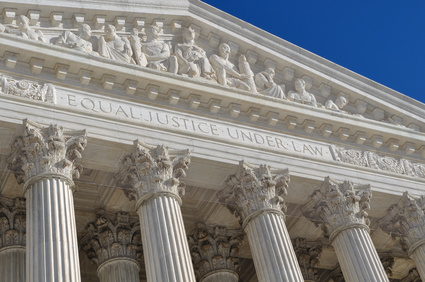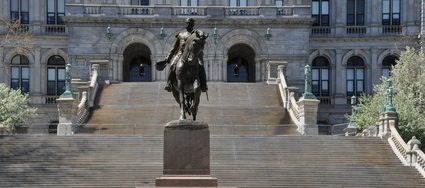In an appeal that garnered significant attention from consumer groups who filed briefs as amici curiae, the Supreme Court of Pennsylvania recently held that any entity that charges excessive attorney’s fees in connection with a foreclosure may be liable for treble damages, fines, and attorney’s fees under the Pennsylvania Loan Interest Protection Law. A copy of the opinion in Glover v. Udren Law Offices, PC is available at: Link to Opinion. The borrower entered into a residential mortgage in 2002, and later defaulted. In the foreclosure proceedings that followed, the mortgagee’s counsel took several actions on the mortgagee’s behalf. The parties…
Posts published in June 2016
The Court of Civil Appeals of Alabama recently rejected a debtor’s attempt to recast a creditor’s collection claims to make the claims subject to a shorter statute of limitations. In so ruling, the Court held that Alabama’s civil procedure rule as to motion for summary judgment affidavits is satisfied by testimony as to an affiant’s personal knowledge of the information contained in an affidavit. A copy of the opinion in Cook v. Midland Funding, LLC is available at: Link to Opinion. The debtor opened a credit card account with a bank in 1995. Years later, in 2009, the debtor failed to…
As you may recall from our prior updates, the U.S. Court of Appeals for the Second Circuit recently reversed a district court’s ruling that federal National Bank Act preemption applicable to the loan originator allowed a non-bank consumer debt buyer to charge interest in excess of state usury limits. In so ruling, the Second Circuit noted that, “[a]lthough it is possible that usury laws might decrease the amount a national bank could charge for its consumer debt in certain states (i.e., those with firm usury limits, like New York), such an effect would not ‘significantly interfere’ with the exercise of…
On June 23, New York Gov. Andrew Cuomo signed S8159 into law, which among other things contains provisions relating to: Mandatory settlement conferences in residential foreclosures. The new law modifies New York’s mandatory settlement conference provisions for residential mortgage foreclosures to among other things allow courts to sanction mortgagees up to $25,000 and award attorney fees in favor of the borrower for non-compliance, clarifies that the failure to offer or accept an offer is not sufficient to establish lack of good faith participation, and allows borrowers who participate in settlement conferences to have defaults vacated. A pre-foreclosure duty for mortgagees to…
The federal Consumer Financial Protection Bureau (CFPB) recently issued its “Supervisory Highlights – Mortgage Servicing – Special Edition” (Issue 11), addressing examination issues reportedly found as to loss mitigation acknowledgement notices, loss mitigation offers and related communications, loan modification denial notices, servicer policies and procedures, and servicing transfers. Of note, the Supervisory Highlights also addresses the CFPB’s approach to mortgage servicing examinations, including as to recent changes to the mortgage servicing chapter of the CFPB Supervision and Examination Manual. A copy of report is available at: Link to Report. The CFPB summarized its findings as follows: Outdated and deficient servicing…
Reversing a bankruptcy court order in favor of the debtor, the U.S. District Court for the District of Maryland recently held that a bank that had allowed amounts to be withdrawn from a home equity credit line after the HELOC had been frozen could still recover those amounts from the debtor. A copy of the opinion in Cardinal Bank, NA v. Rusnack is available at: Link to Opinion. During 2006, the bankruptcy debtor and his former wife underwent divorce proceedings, and the debtor instructed the creditor bank holding his home equity line of credit (HELOC) to freeze the HELOC. On June…
In a putative class action alleging failure to timely record satisfactions of mortgages, the Supreme Court of Ohio recently held that a cease-and-desist order issued by the Federal Housing Finance Agency (FHFA) to Federal National Mortgage Association (Fannie Mae) did not preclude the trial court from exercising jurisdiction under the federal statute governing judicial review of FHFA orders. However, the Court also held that a different federal law bars the trial court from ordering Fannie Mae to provide monetary relief under the Ohio statute at issue, while Fannie Mae is under FHFA’s conservatorship, because the federal statute prohibits Fannie Mae…
The U.S. Court of Appeals for the Fourth Circuit recently held that an arbitration provision was enforceable under the Federal Arbitration Act, 9 U.S.C. §§ 1 et seq., and under Maryland law, even though the arbitration provision appeared in an amended finance agreement that was not signed by the finance company, and even though additional terms in the amended finance agreement were later modified. A copy of the opinion in Galloway v. Santander Consumer USA, Inc. is available at: Link to Opinion. The plaintiff was the obligor on a retail installment sales contract (RISC) she obtained to finance the purchase of…
The U.S. Court of Appeals for the Ninth Circuit recently held that the discovery rule applies equally regardless of the nature of the federal Fair Debt Collection Practices Act (FDCPA) violation alleged by a plaintiff. Therefore, according to the Ninth Circuit, the FDCPA statute of limitations begins to run in all cases when the plaintiff knows or has reason to know of the injury which is the basis of the action. A copy of the opinion in Lyons v. Michael & Associates is available at: Link to Opinion. The plaintiff consumer filed a lawsuit against the defendant debt collector alleging it…
The U.S. District Court for the Eastern District of New York recently held that a confirmable Chapter 13 plan cannot both “vest” title to real property and “surrender” that property to a secured lender, and that the secured lender may refuse to accept the vesting in satisfaction of its claim. Thus, the Court held that a debtor may not force the transfer of title in collateral to a secured creditor in satisfaction of the secured creditor’s claim, without the consent of the secured creditor. A copy of the opinion in HSBC Bank USA, NA v. Zair is available at: Link to…
The Appellate Division of the Supreme Court of New York recently reversed the dismissal of a foreclosure action involving an electronic note, holding that the mortgagee’s evidence of the eNote transaction history and the eNote itself were sufficient to establish the mortgagee’s standing to foreclose. A copy of the opinion in New York Community Bank v. McClendon is available at: Link to Opinion. On Nov. 7, 2008, the borrower executed a mortgage in favor of a lender bank to secure a promissory note executed the same day for $544,000. The note was signed by electronic signature. The lender bank was subsequently…
As an example of the conflicting and contrasting court rulings on the effect of surrender in bankruptcy (see our prior update), the District Court of Appeal of the State of Florida, Fifth District, recently dismissed a borrower’s appeal from a final judgment of foreclosure because the borrower admitted during the course of his bankruptcy proceeding that he owed the mortgage debt and stated his intention to surrender the mortgaged property. A copy of the opinion in Rivera v. BAC Home Loans is available at: Link to Opinion. A mortgage loan borrower filed for bankruptcy relief while his appeal of a foreclosure…












